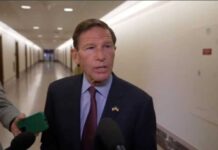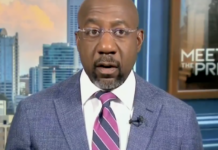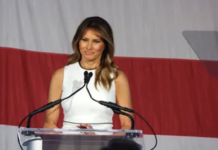
As the 2024 presidential campaign unfolds, California Congressman Ro Khanna, a top surrogate for Kamala Harris, made an appearance on CNBC to discuss the race, but it’s Harris’s economic proposals—or lack thereof—that are drawing serious scrutiny. While Harris has remained largely absent from interviews since President Joe Biden was forced to drop his re-election bid, her campaign is moving forward with policies that are sparking significant backlash, particularly concerning her stance on capital gains taxes.
Khanna, during his CNBC interview, distanced himself from one of Harris’s most controversial ideas: taxing unrealized gains. This proposal has been one of the few economic policies Harris has put forth, and it’s becoming a focal point of criticism, especially as her campaign doubles down on it.
On the same day as Khanna’s interview, Harris vowed to raise the top federal capital gains tax rate to 33%, according to *Americans for Tax Reform*. For context, this would be the highest rate since the era of President Jimmy Carter, a time synonymous with economic stagnation. Currently, China’s capital gains tax sits at 20%, while the European average hovers at 17.9%. Under Harris’s plan, many states would see a combined federal-state capital gains tax exceeding 40%, a substantial increase that has raised alarm across the financial sector.
This proposal also fails to address the inflationary impact on capital gains. As it stands, capital gains aren’t adjusted for inflation, meaning Americans are taxed on “gains” that might simply reflect the rising cost of living—largely driven by the same Washington policies that Harris supports. The Biden-Harris administration’s handling of inflation has already squeezed Americans, and taxing inflation-driven gains adds insult to injury.
The potential consequences of such a tax policy are particularly harsh for small business owners. Consider a couple who started a business at age 25, worked tirelessly to grow it, and now, at age 65, are ready to sell and retire. Under Harris’s proposed capital gains tax, 33% of their hard-earned profits would go straight to Washington. For many, that’s more than a blow—it’s a gut punch that could deter investment, discourage entrepreneurship, and create a chilling effect on the small business community that drives much of America’s economy.
Harris’s capital gains tax plan has drawn ire from both sides of the aisle, as it risks overburdening investors and business owners while stifling economic growth. Moreover, by not indexing capital gains to inflation, Harris’s policy effectively punishes Americans for an economic environment that Washington itself has largely created through poor fiscal management and uncontrolled spending.
While Khanna’s distancing from Harris’s tax proposals might seem like an attempt to ease concerns, the larger issue is Harris’s failure to engage directly with voters or the media on her policies. With a campaign pushing ideas that harken back to the economically stagnant Carter era, and a candidate who has been conspicuously absent from the national stage, serious questions are being raised about her ability to steer the nation toward a more prosperous future.
As the campaign progresses, voters will likely demand more than vague proposals and evasive media tactics. Harris’s policies are now under the microscope, and with tax plans like this, she will need to confront the growing skepticism surrounding her economic vision for the country.






















